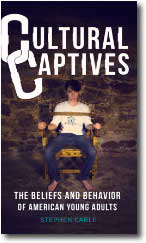January 21, 2008
In an earlier commentary I talked about the importance of a voter ID. That case out of Indiana has gone before the Supreme Court, and we will hear their verdict in the next few months.
Although the case shouldn’t be that controversial, it centers on the requirement in Indiana that voters show photo identification when they cast their ballot. Given the simple fact that we have to show photo IDs for so many routine actions, you wouldn’t think that requirement would be that controversial.
Opponents argue that this imposes an unconstitutional burden on voters. Yet the law allows those few citizens without a driver’s license (estimated to be around one percent) to obtain a free, state-sponsored picture ID. And even if someone arrives at the polling place unprepared, they are given a provisional ballot that they can validate later.
Opponents also argue that this law will disenfranchise low-income voters, minorities, or seniors. Yet a statistical analysis by the Heritage Foundation demonstrated that voter ID laws in other states do not depress voter turnout. It does however limit the number of dogs, cats, or deceased people who try to vote in an election.
One critic suggested that this voter ID law would move us closer to a national ID. But if you are concerned about that, you might want to have the government rethink the use of a photo ID in so many other areas of life. After all, most people vote once every two years or once every four years. But they are required to show a photo ID every time they board a plane or every time they cash a check.
How the Supreme Court rules on this case will not only affect Indiana, but may have an impact on 24 other states that have various kinds of laws on the books to prevent voter fraud. Former president Jimmy Carter pointed out that the United States is merely attempting to do what most countries already do. He said: “Voters in nearly 100 democracies use a photo identification card without fear of infringement on their rights.”
Let’s hope the Supreme Court takes that into account.
©2008 Probe Ministries
Post Views: 2,730
Related Posts
Voter IDJanuary 8, 2008 While we find ourselves in the midst of the election season, there is an issue in the background that will have a profound impact on future elections.…
SuperdelegatesFebruary 27, 2008 In a previous commentary I talked about how the current Democratic Party rules made it possible for Barack Obama to do so well in the primaries. There…
Throw Out the MapsMarch 13, 2008 Michael Barone says it is time to throw out the old electoral maps, and he should know. Many people have called him the most knowledgeable person in…
Men With BiblesSeptember 2, 2011 God works in miraculous ways to get His Word to believers who need it. I thought I might share a story I read years ago in a…
Faith and CharityHere is an interesting fact. Families in San Francisco give almost exactly the same amount to charity each year as families in South Dakota. Arthur Brooks talked about this in…
Candidates and ReligionOctober 9, 2007 Should we know more about a political candidate's religion before we vote? That is a question that will certainly surface in this election cycle. When John Kennedy…

Kerby Anderson is president of Probe Ministries International. He holds masters degrees from Yale University (science) and from Georgetown University (government). He is the author of several books, including Christian Ethics in Plain Language, Genetic Engineering, Origin Science, Signs of Warning, Signs of Hope and Making the Most of Your Money in Tough Times. His new series with Harvest House Publishers includes: A Biblical Point of View on Islam, A Biblical Point of View on Homosexuality, A Biblical Point of View on Intelligent Design and A Biblical Point of View on Spiritual Warfare. He is the host of "Point of View" (USA Radio Network) heard on 360 radio outlets nationwide as well as on the Internet (www.pointofview.net) and shortwave. He is also a regular guest on "Prime Time America" (Moody Broadcasting Network) and "Fire Away" (American Family Radio). He produces a daily syndicated radio commentary and writes editorials that have appeared in papers such as the Dallas Morning News, the Miami Herald, the San Jose Mercury, and the Houston Post.
What is Probe?
Probe Ministries is a non-profit ministry whose mission is to assist the church in renewing the minds of believers with a Christian worldview and to equip the church to engage the world for Christ. Probe fulfills this mission through our Mind Games conferences for youth and adults, our 3-minute daily radio program, and our extensive Web site at www.probe.org.
Further information about Probe's materials and ministry may be obtained by contacting us at:
Probe Ministries
2001 W. Plano Parkway, Suite 2000
Plano TX 75075
(972) 941-4565
[email protected]
www.probe.org
Copyright/Reproduction Limitations
This document is the sole property of Probe Ministries. It may not be altered or edited in any way. Permission is granted to use in digital or printed form so long as it is circulated without charge, and in its entirety. This document may not be repackaged in any form for sale or resale. All reproductions of this document must contain the copyright notice (i.e., Copyright 2023 Probe Ministries) and this Copyright/Limitations notice.




